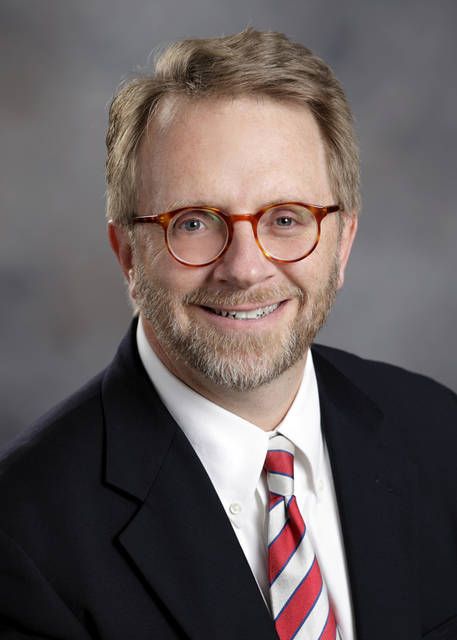Click here to subscribe today or Login.
DALLAS TWP. — With the wheels of impeachment officially set in motion, one local expert urged people to avoid blindly taking sides.
“Every American should take a deep breath and get a good civics lesson,” Misericordia University’s Brian Carso said. “This impeachment battle is going to test all the assumptions we’ve made about self-government.”
A Constitutional lawyer-turned history professor who wrote a book about treason, Carso recently gave a lecture on impeachment at the State University of New York, and will be giving another soon at Misericordia. He stresses a big picture look at the reasons the founding fathers included impeachment in the Constitution and the ways it has been interpreted over the centuries.
“James Madison talked, as did all the framers, about the assumptions built into the Constitution,” Carso said, “Things like what virtues are necessary in elected leaders and citizens to make democracy possible?
“My hope is that as these proceedings advance, Americans don’t just run into their respective camps and slam the door, that we think about what it means to be a citizen and what we expect of our government.”
Such reflection is essential precisely because impeachment is ultimately a political process. “As Gerald Ford said back in 1970 when he was a congressman, ‘an impeachable offense is whatever a majority of the House of Representatives considers it to be’.”
Which means, Carso added, “it depends, in part, on who is going to give the best narrative.” In that regard the latest allegations offer a fairly simple case for impeachment: The president allegedly withheld Congress-approved military aid as leverage to get Ukraine to investigate presidential candidate (and political foe) Joe Biden and his son Hunter.
“It can be summed up in a single paragraph” Carso said.
Carso said that, while more evidence is needed, the allegation readily fit historic interpretations of the “high crimes and misdemeanors” justification for impeachment in the Constitution.
For the framers, “there was precedent in English law on high crimes and misdemeanors,” Carso said. It is precedent explored in the Federalist Papers, James Madison’s notes on Constitutional Convention, and by early Supreme Court justices.
“All of those people in this early republic expressed what they worried about: A president advancing personal interests in ways detrimental to the national interest,” Carso said. “That is exactly what the framers contemplated when they put the impeachment clause in the Constitution.”
While the Ukraine claim seems to fit the original meaning of high crimes and misdemeanors, Carso cautioned against any presumptions. There have been only three impeachments since the Constitution was adopted in 1787. One never went to trial in the Senate because Richard Nixon resigned, and in the other two cases (Bill Clinton and Andrew Johnson) there was no conviction.
“It’s uncharted territory,” he said.





